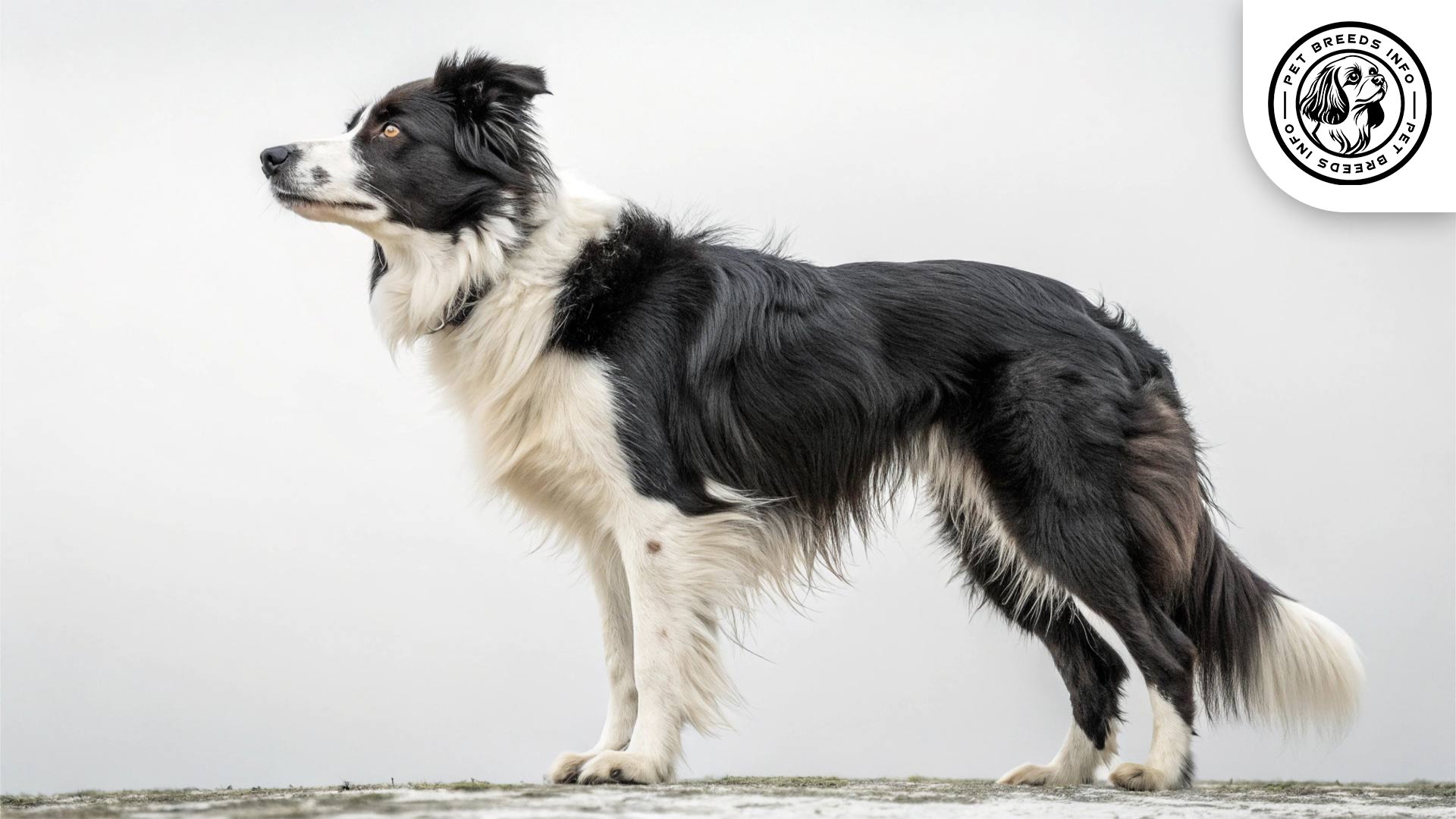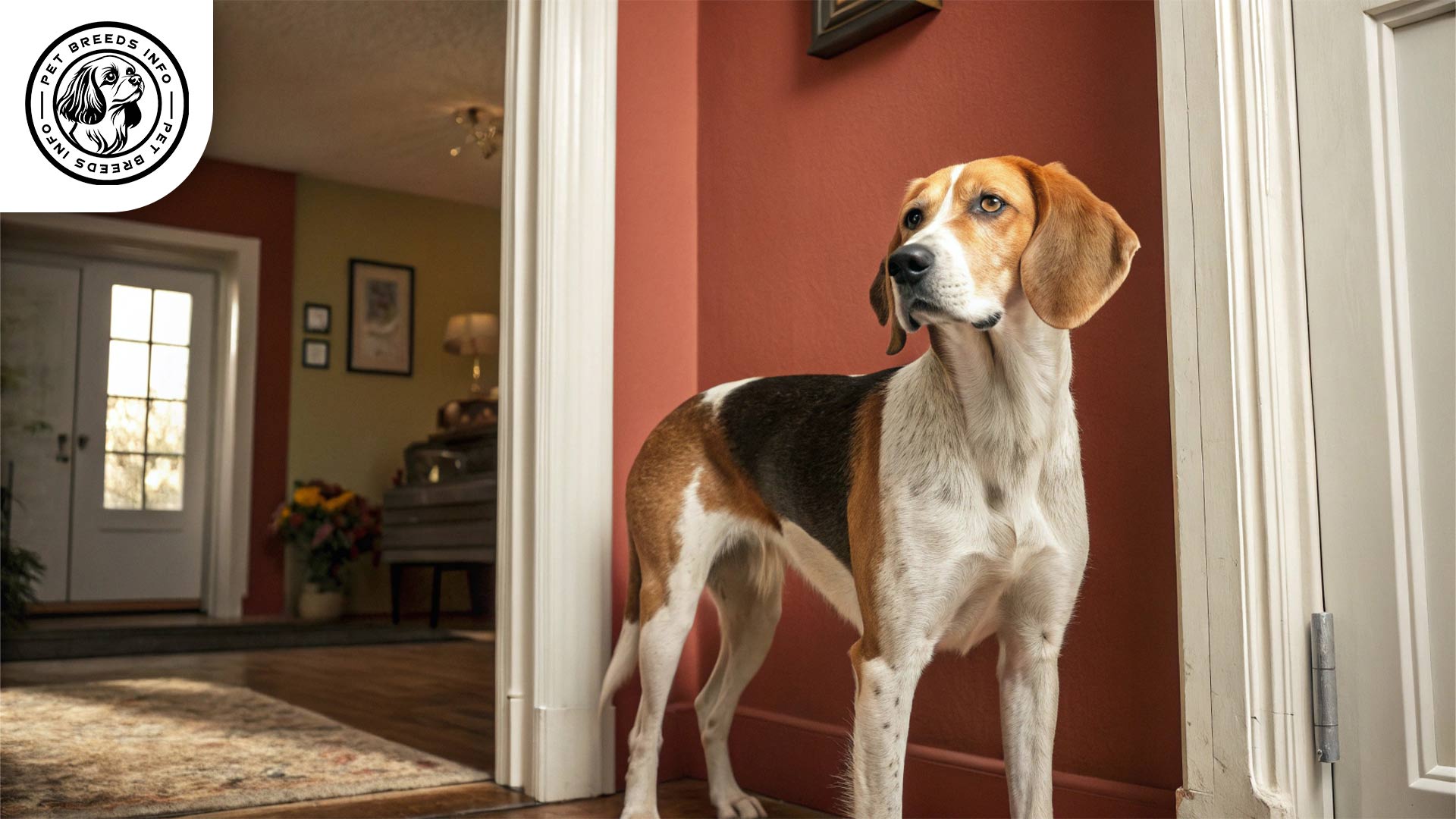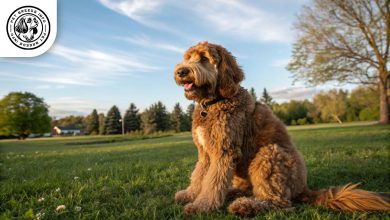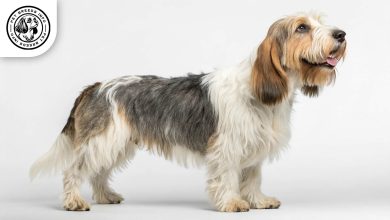Border Collie Dog Breed: Size, Health, Price & Personality
General Introduction of the Breed
The Border Collie, also known simply as “Collie” in some regions, originates from the border region between Scotland and England. Bred for herding livestock, particularly sheep, Border Collies have a long history as one of the most intelligent and hardworking dog breeds. They were developed by shepherds who needed a highly trainable, energetic, and attentive dog to manage large flocks effectively.
Table of Contents
| Weight | 30-45 lbs |
| Lifespan | 12-15 years |
| Diet | High-protein kibble, wet, or raw diet |
| Care | Regular grooming, exercise, and training |
| Health | Prone to hip dysplasia, epilepsy, PRA, CEA |
| Color | Black & white, red & white, blue merle, sable, tricolor |
| Nature | Intelligent, energetic, affectionate |
| Price | $800 – $3,000 |
Physical Characteristics
Border Collies are medium-sized dogs with males typically standing between 19 to 22 inches (48 to 56 cm) in height and females between 18 to 21 inches (46 to 53 cm). Their weight ranges from 30 to 45 pounds (14 to 20 kg).
The breed has a double-layered coat that can be either smooth or rough. Coat colors vary widely and include black and white, red and white, blue merle, sable, and tricolor patterns.
Border Collies have oval-shaped eyes that are usually brown, but blue or one blue and one brown eye is also common. Their ears can be erect, semi-erect, or fully dropped, contributing to their alert expression. Their tail is moderately long and slightly curved, often carried low unless they are excited.
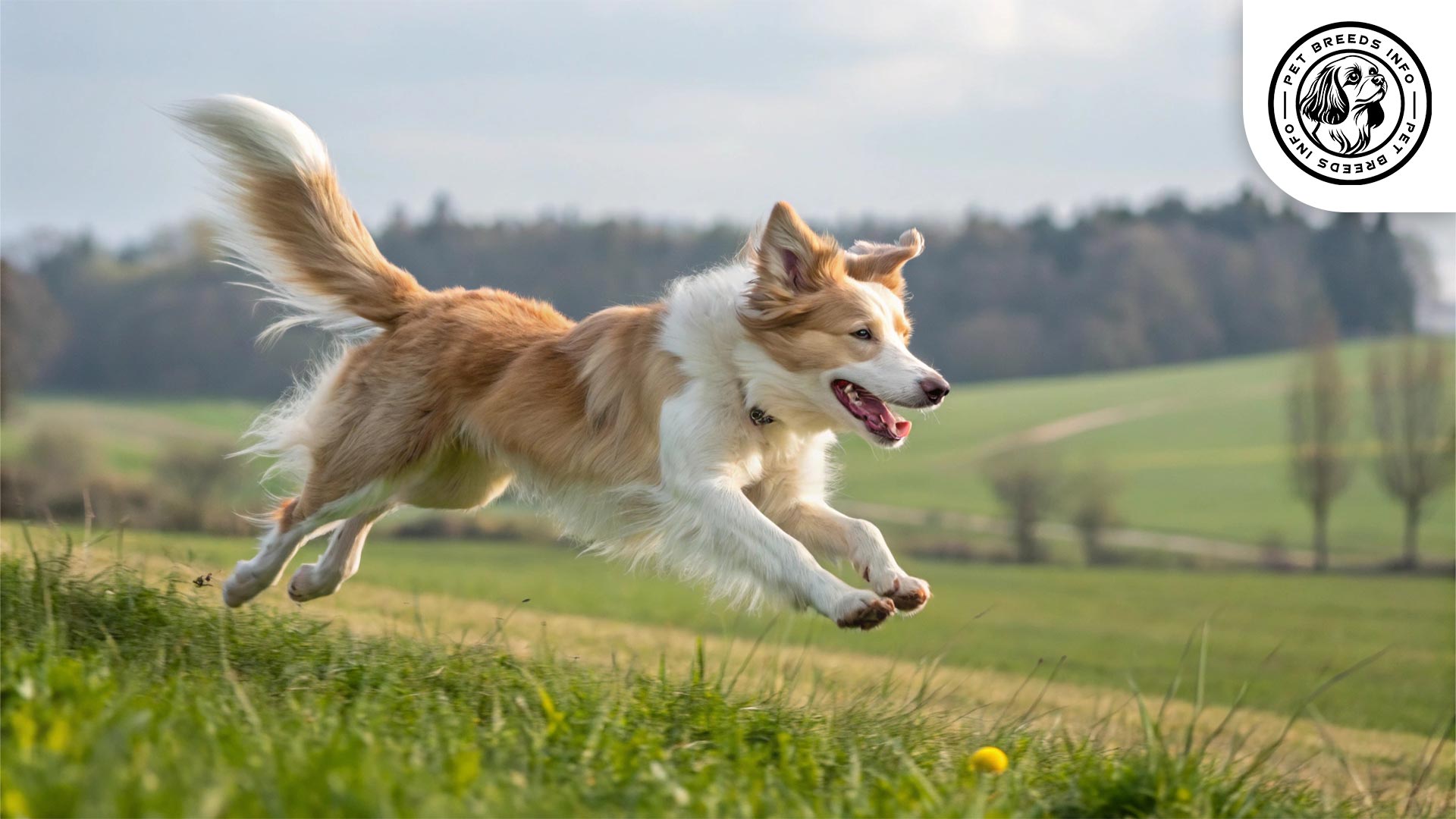
Personality and Temperament
Border Collies are among the most intelligent dog breeds and are highly trainable. They learn commands quickly and excel in obedience sports.
They have an extremely high energy level and require ample daily exercise. Without sufficient activity, they may develop destructive behaviors.
Border Collies form strong bonds with their owners and often display loyalty and affection. They are highly social but can be reserved with strangers.
They generally get along well with children and other pets, but their strong herding instincts may lead to chasing and nipping behaviors.
Due to their sensitivity to changes in their environment and routine, they thrive best in a stable household with a predictable schedule.
Care and Maintenance Requirements
Border Collies need at least 1.5 to 2 hours of exercise daily, including running, agility training, and interactive games.
They are not ideal for apartment living and thrive in homes with large yards or access to open spaces where they can run freely.
Regular grooming is essential, as their double coat sheds moderately year-round and heavily during seasonal changes. Brushing two to three times a week helps reduce shedding.
They are sensitive to extreme heat, so exercise should be limited during hot weather. In cold conditions, they can tolerate lower temperatures due to their dense coat.
Routine hygiene includes occasional bathing, nail trimming every few weeks, ear cleaning, and regular dental care to prevent gum diseases.
Diet and Nutrition
Border Collies do best on a high-protein diet, whether through quality dry kibble, wet food, or a raw diet. A balanced diet with lean meats, vegetables, and grains is recommended.
The breed is prone to food allergies, so grain-free or hypoallergenic diets may be beneficial. Overfeeding should be avoided to prevent obesity.
Read More: Bloodhound Dog
Harmful foods that should be avoided include chocolate, grapes, onions, garlic, and excessively fatty or processed foods.
Border Collies should be fed two meals per day. Puppies require more frequent meals, while adult dogs should maintain a consistent feeding schedule.
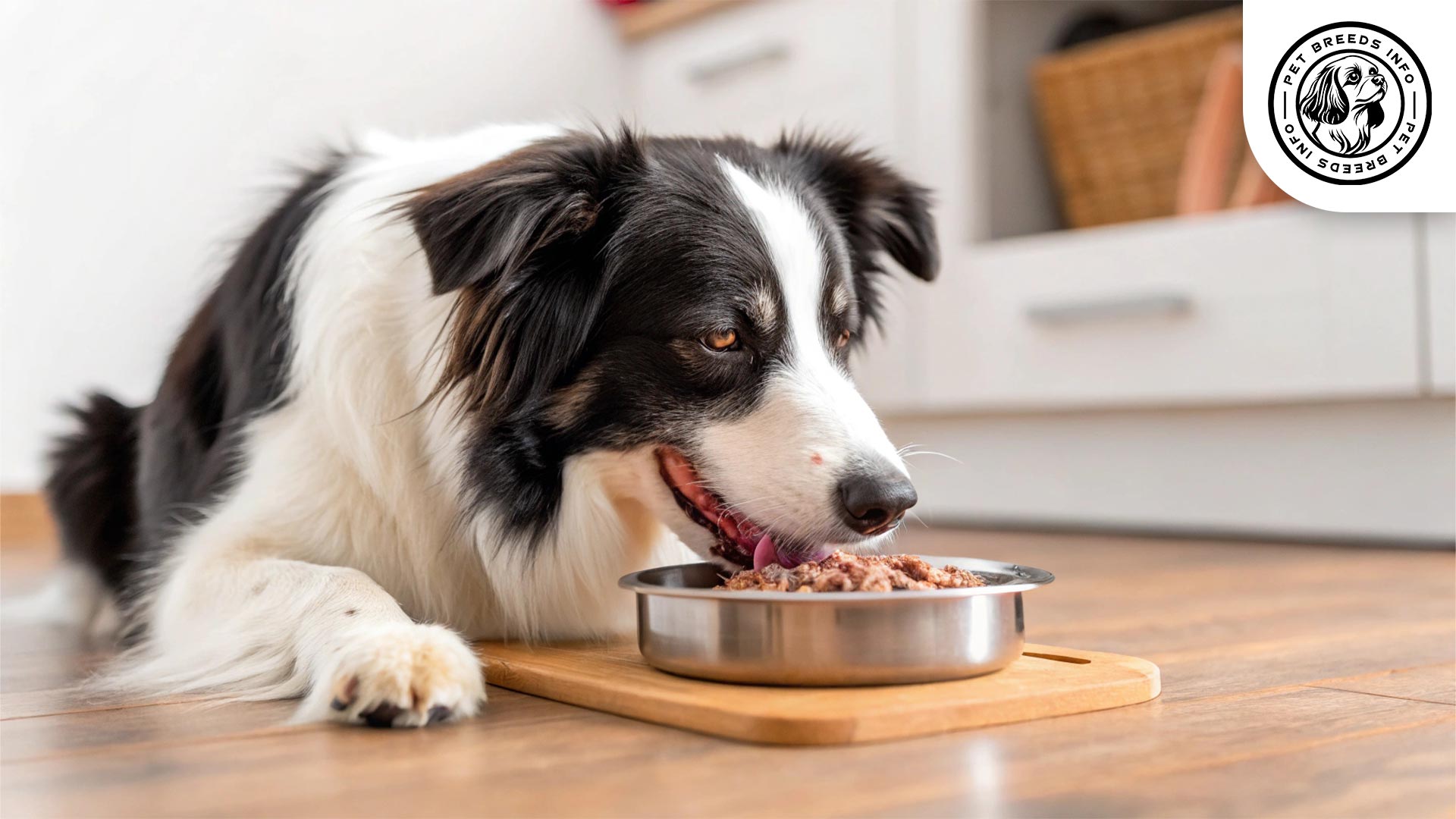
Health and Common Medical Issues
Common genetic health conditions in Border Collies include hip dysplasia, epilepsy, progressive retinal atrophy (PRA), and Collie eye anomaly (CEA).
They are also sensitive to certain drug treatments due to a genetic MDR1 mutation.
The average lifespan of a Border Collie is 12 to 15 years.
Regular vaccinations, deworming, flea treatments, and annual veterinary check-ups are essential for maintaining their health.
Training and Behavior Management
Border Collies are easy to train due to their intelligence and eagerness to please. However, they require mental stimulation as much as physical activity.
Early socialization is crucial to prevent any shyness or sensitivity to noises and people.
Positive reinforcement, such as treats and praise, works best when training them. They do not respond well to harsh corrections.
Read More: Black and Tan Coonhound Dog
Teaching impulse control is important, as their herding instincts can lead to chasing moving objects, including cars or small children.
Interaction with Other Animals and Humans
Border Collies generally get along well with children but may attempt to herd them by nipping. Supervision is important in play sessions.
They are usually good with other dogs and pets, though they may exhibit dominant behavior towards small animals.
The breed is well-suited for active families or individuals who can provide ample attention, exercise, and training.
Border Collies are highly attached to their owners and do not enjoy being left alone for extended periods, as they may develop separation anxiety.
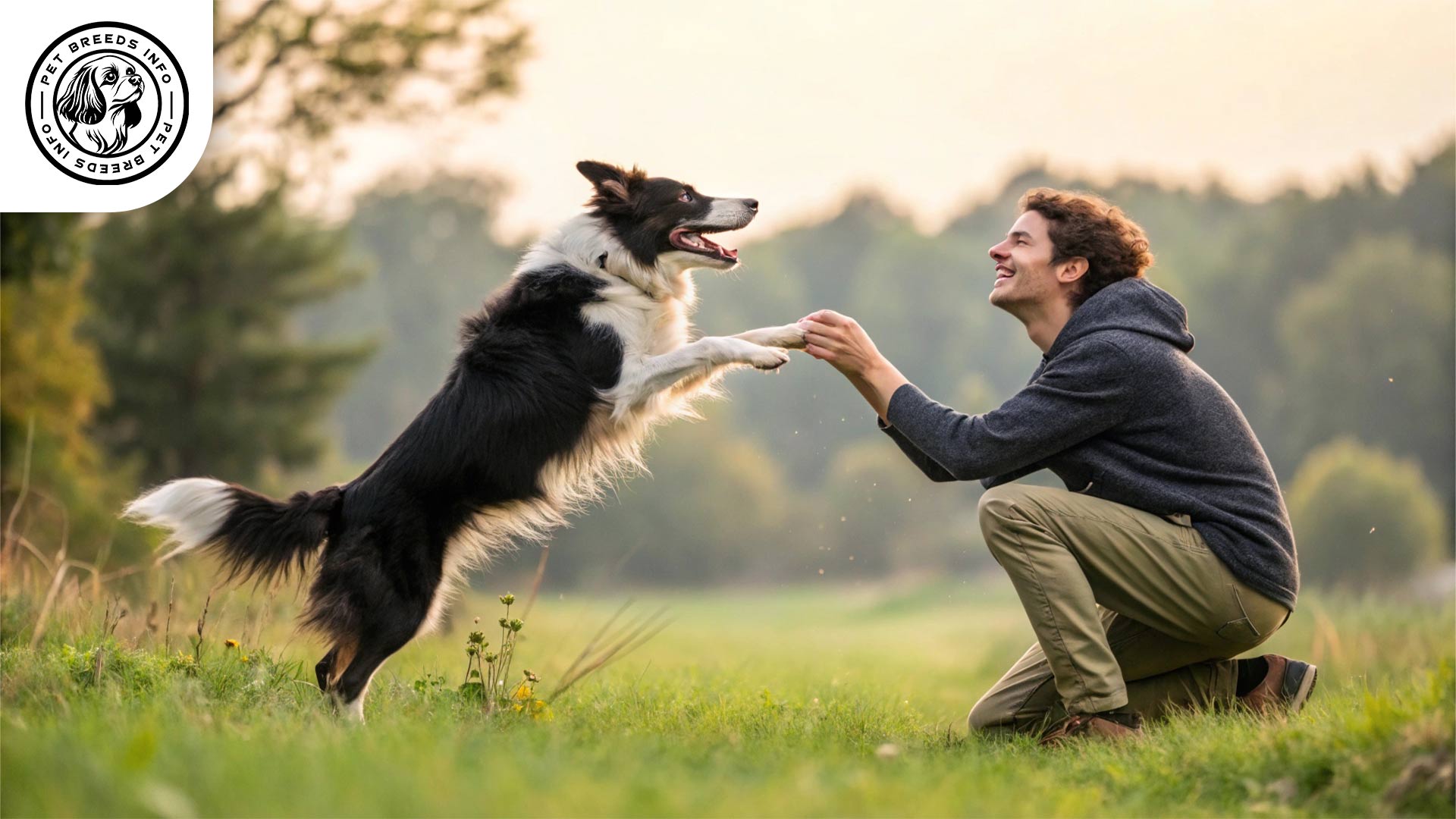
Price and Availability
The average cost of a Border Collie puppy from a reputable breeder ranges from $800 to $3,000, depending on lineage and location.
When adopting or buying a Border Collie, it is essential to consider their energy levels and maintenance needs to ensure they fit well with your lifestyle.
Prospective owners should adopt from responsible breeders, rescue shelters, or dedicated Border Collie organizations.
Conclusion and Final Thoughts
Border Collies are not suited for first-time dog owners due to their intense needs for mental stimulation, training, and exercise.
The ideal home is one with access to large outdoor spaces or an owner who is enthusiastic about engaging in agility training or other high-energy activities.
Read More: Blue Lacy Dog
Potential owners should be prepared to meet the breed’s physical and mental demands to prevent behavioral issues.
If provided with adequate care, training, and interaction, a Border Collie will prove to be a loyal, affectionate, and highly intelligent companion.
FAQ
Can Border Collies live in apartments?
They are best suited for homes with large yards or active owners who can meet their exercise needs.
Are Border Collies easy to train?
Yes, they are highly trainable and excel in obedience, agility, and herding. Positive reinforcement works best.
Do Border Collies shed a lot?
Yes, they shed year-round and heavily during seasonal changes. Regular brushing helps manage shedding.
How much exercise does a Border Collie need?
At least 1.5 to 2 hours of physical and mental stimulation daily.
